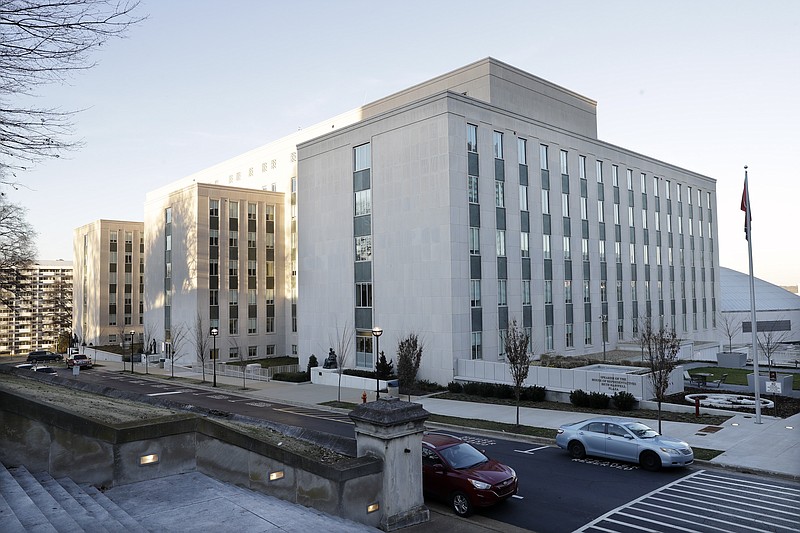NASHVILLE - Tennessee Lt. Gov. Randy McNally and House Speaker Cameron Sexton are defending their decision to close the Legislature's Cordell Hull State Building to members of the general public in the wake of the coronavirus outbreak.
Both Republicans say the action is necessary and legal, while emphasizing that legislative proceedings will be livestreamed to the public.
"The decision to limit public access to the Cordell Hull building was not one Speaker Sexton and I arrived at easily," McNally, the Senate speaker from Oak Ridge, said in a Sunday statement to the Times Free Press. "This extreme measure was taken because the COVID-19 virus is an aggressive pathogen that presents a unique public health emergency."
Sexton, R-Crossville, said in his own statement Sunday that "information surrounding COVID-19 has been and will continue to evolve over the next several weeks.
"We will continue to monitor and assess daily as we continue to make decisions," Sexton added. "The decision to close the Cordell Hull Building to the public was not one made without pragmatic and extensive deliberation with the health care community and others. I believe this is a reasonable, legal and necessary conclusion reached by both me and Lt. Governor McNally, in consultation with Attorney General Slatery and our legal counsel."
The top leaders late Friday announced the closure of the Cordell Hull Building, home to lawmakers' offices and committee hearing rooms. That followed Republican Gov. Bill Lee's earlier similar edict barring the general public from the Capitol building after his formal emergency declaration for the state.
Both directives allowing working members of news organizations to attend and report on proceedings. But open government advocates and lobbyists voiced concerns Saturday to the Times Free Press.
The Tennessee Constitution's Article II, Section 22, states: "The doors of each House and of committees of the whole shall be kept open, unless when the business shall be such as ought to be kept secret."
The Times Free Press reached out Saturday to spokespeople for both McNally and Sexton but received no immediate response.
McNally said the provision was "designed to prevent government secrecy. Through the admittance of the press and the use of video streaming, our proceedings will remain completely open, transparent and accessible to all. Due to modern technology, any member of the public can watch online, access bills and amendments on the General Assembly's website, read news accounts and immediately register their grievance with their elected representatives through electronic communication."
McNally said he and Sexton "resisted this measure as long as possible but, after consulting with legal counsel and the attorney general, ultimately decided it was both necessary and legal under these extreme and exigent circumstances."
In his statement, Sexton said, "I want to ensure I do everything possible to limit the potential exposure and spread of COVID-19 among our members, staff, their families and those who still have facility access during these unprecedented circumstances. We will continue to operate out of an abundance of caution and take additional precautions as they become necessary."
He said both he and McNally are "asking all Tennesseans to continue to follow the recommendations set forth by the [U.S. Centers for Disease Control and Prevention] and the Tennessee Department of Health related to this virus."
Contact Andy Sher at asher@timesfreepress.com or 615-255-0550. Follow on Twitter @AndySher1.
